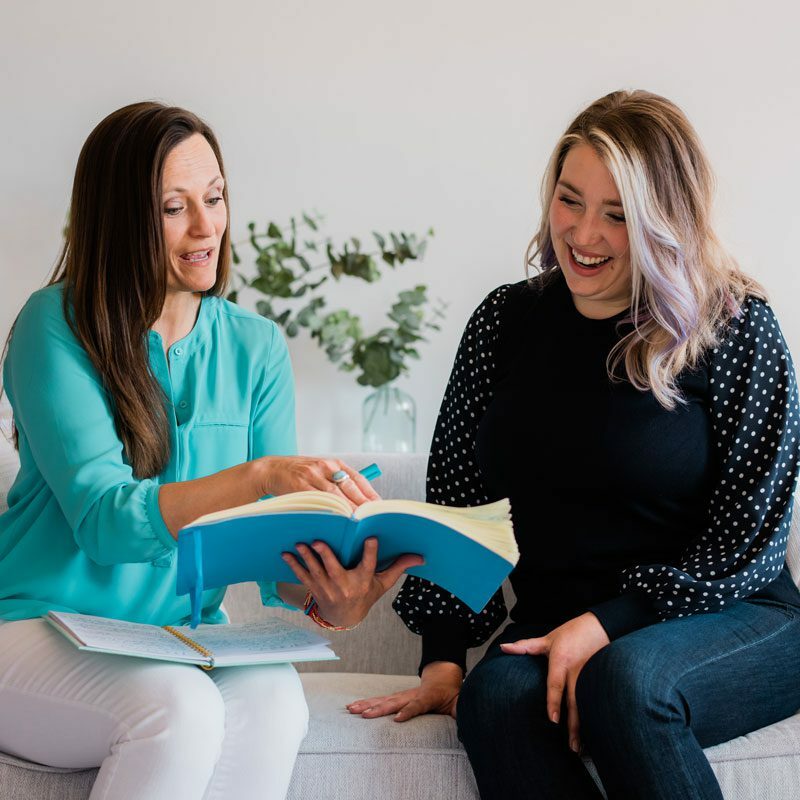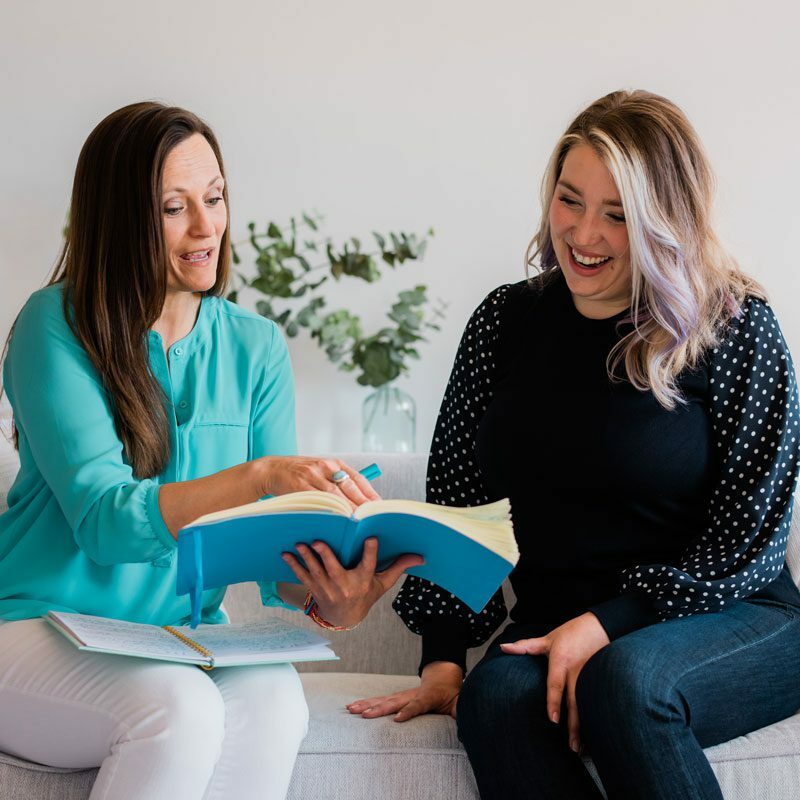Let's work together.
My Mission:
To empower every person to know their worth and have a deep sense of purpose and belonging.
When you show up fully, you will. . .
Connect to your soul purpose and embrace who YOU are meant to be as a leader. Stop shrinking yourself to fit a mold that requires you to abandon your authentic self to demonstrate you are “in control”. Stop the chaos of overwhelm and set clear boundaries that allow you to create balance and avoid burnout. Own your worth as a leader and confidently show up for the transformative work of shifting culture

While both counseling and coaching center around healing and service to others, there are some important distinctions between the two. In traditional counseling or therapy, the primary focus of the work centers on processing and reflection. While that is not to say that the outcome isn’t designed to create change, it is to say that the primary mode of change tends to be through reflection and processing. Coaching, on the other hand, leans more heavily toward explicit activities and action. For some people who are naturally reflective or who have participated in traditional therapy, there can be the feeling over time that they are engaging in an endless processing loop. This may result in feeling stuck without substantive change or producing the desired results. If you want to see significant change and you’re not achieving your goals, coaching might be a great fit! Another important difference between counseling and coaching is the relationship and connection between coaches and clients. In therapy, explicit boundaries dictate that counselors limit the sharing of personal experiences or information with their clients.
As a coach, the focus is on cultivating a relationship that best suits the individual needs of the client and can involve connecting around shared experiences. As a guide, your coach supports you, with their developed expertise, to mentor you along your journey, which can include sharing parts of their own journey. Professional boundaries remain important, however, and coaches should always share in ways that are appropriate to the coaching relationship and in the best interest of the client. Finally, counseling occurs within a scheduled therapy session (typically 50 minutes), while coaching is a continuous process that can include meeting together for coaching sessions, as well as activities, assignments, and readings between sessions. Additionally, clients might also have access to their coach via email and text between sessions. Please note that counseling is not only useful for many situations, but critical in treating mental health disorders. Coaches are NOT mental health clinicians and are not trained to diagnose or treat mental health disorders. Individuals dealing with trauma, self harm, suicidal ideation, and or other clinical mental health disorders should not seek coaching, but rather mental health counseling.

"Through asking questions and reframing the narrative, Kelly coaches me to get myself to a place of action, where I can move forward with clarity and confidence."
NANCY LANG ~ Education Administration
"Working with Kelly has given me strength and clarity to assist me in making major life decisions. I have trusted her process and couldn't be happier with my results."
KATE LEDOUX ~ Independent Counseling and Consulting
"I didn't have time for this, and I didn't make all the sessions; however, the weeks I made time to attend, I felt better and stronger as a person afterwards. I expected to sign on to the sessions, turn off my camera and mic, and work on other things while the speaker droned on... imagine my surprise when I couldn't help but consider the practical solutions Kelly offered to manage my stress and engage with the speaker and other participants. Every. Time. Who knew there could be a PD session that engenders hope during a COVID/under-construction/transition-everything-year!"
SARAH DESAULNIERS ~ Teacher
“This was liberating! A must do during a time of major burnout for educators.”
MORGAN BOULÉ ~ Teacher
“We all need to stop and force ourselves, even if it's once a week for an hour or so, to think about and care for ourselves. To rest. To be proactive about our health and happiness, instead of simply doing for others. This weekly session was a great way to start thinking about how to better balance work/life/stress/contentment/our needs/the needs of others. Thank you so much for this workshop."
REBECCA LENZ ~ Teacher
subscribe to my weekly mindful mini!
A quick — but effective — mindfulness exercise will be delivered directly to your inbox each week for FREE!
Let's work together.

My Mission:
To empower every person to know their worth and have a deep sense of purpose and belonging.
When you show up fully, you will. . .
→ Connect to your soul purpose and embrace who YOU are meant to be as a leadernn→ Stop shrinking yourself to fit a mold that requires you to abandon your authentic self to demonstrate you are “in control” nn→ Stop the chaos of overwhelm and set clear boundaries that allow you to create balance and avoid burnoutnn→ Own your worth as a leader and confidently show up for the transformative work of shifting culture
"Through asking questions and reframing the narrative, Kelly coaches me to get myself to a place of action, where I can move forward with clarity and confidence."
NANCY LANGnEducation Administration
"Working with Kelly has given me strength and clarity to assist me in making major life decisions. I have trusted her process and couldn't be happier with my results."
KATE LEDOUXnIndependent Counseling and Consulting
"I didn't have time for this, and I didn't make all the sessions; however, the weeks I made time to attend, I felt better and stronger as a person afterwards. I expected to sign on to the sessions, turn off my camera and mic, and work on other things while the speaker droned on... imagine my surprise when I couldn't help but consider the practical solutions Kelly offered to manage my stress and engage with the speaker and other participants. Every. Time. Who knew there could be a PD session that engenders hope during a COVID/under-construction/transition-everything-year!"
SARAH DESAULNIERSnTeacher
“This was liberating! A must do during a time of major burnout for educators.”
MORGAN BOULÉnTeacher
“We all need to stop and force ourselves, even if it's once a week for an hour or so, to think about and care for ourselves. To rest. To be proactive about our health and happiness, instead of simply doing for others. This weekly session was a great way to start thinking about how to better balance work/life/stress/contentment/our needs/the needs of others. Thank you so much for this workshop."
REBECCA LENZnTeacher
While both counseling and coaching center around healing and service to others, there are some important distinctions between the two. nnIn traditional counseling or therapy, the primary focus of the work centers on processing and reflection. While that is not to say that the outcome isn’t designed to create change, it is to say that the primary mode of change tends to be through reflection and processing. nnCoaching, on the other hand, leans more heavily toward explicit activities and action. For some people who are naturally reflective or who have participated in traditional therapy, there can be the feeling over time that they are engaging in an endless processing loop. This may result in feeling stuck without substantive change or producing the desired results. If you want to see significant change and you’re not achieving your goals, coaching might be a great fit!nnAnother important difference between counseling and coaching is the relationship and connection between coaches and clients. In therapy, explicit boundaries dictate that counselors limit the sharing of personal experiences or information with their clients.

As a coach, the focus is on cultivating a relationship that best suits the individual needs of the client and can involve connecting around shared experiences. As a guide, your coach supports you, with their developed expertise, to mentor you along your journey, which can include sharing parts of their own journey. Professional boundaries remain important, however, and coaches should always share in ways that are appropriate to the coaching relationship and in the best interest of the client.nnFinally, counseling occurs within a scheduled therapy session (typically 50 minutes), while coaching is a continuous process that can include meeting together for coaching sessions, as well as activities, assignments, and readings between sessions. Additionally, clients might also have access to their coach via email and text between sessions.nnPlease note that counseling is not only useful for many situations, but critical in treating mental health disorders. Coaches are NOT mental health clinicians and are not trained to diagnose or treat mental health disorders. Individuals dealing with trauma, self harm, suicidal ideation, and or other clinical mental health disorders should not seek coaching, but rather mental health counseling.
subscribe to my weekly mindful mini!
A quick — but effective — mindfulness exercise will be delivered directly to your inbox each week for FREE!
